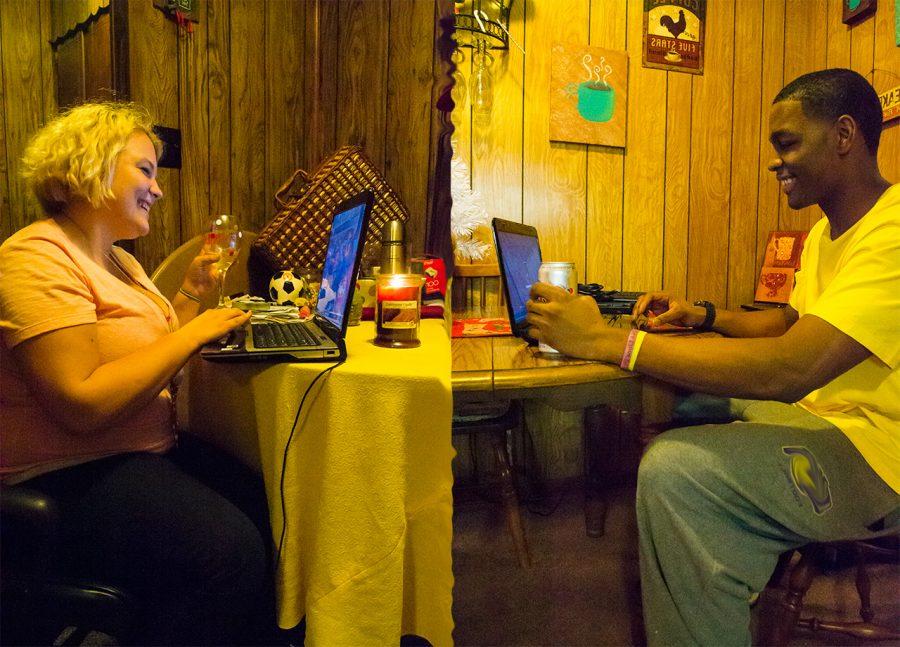Online dating increases in popularity
January 10, 2013
The Digital Age has ushered in the technology to speak with anyone anywhere at anytime about anything — dating is no exception.
In 2012, a research study held by online dating site Match.com showed that approximately 40 million people used an online dating service in that year alone. Despite this number, a mere 17 percent of all people claim to have begun their relationships online as opposed to “the old-fashioned way” of happenstance, according to Match.com.
“I wouldn’t necessarily encourage online dating,” said freshman Rachel Cole. “I think it takes all the fun out of developing the relationship, plus you never know when people are lying about something — you can’t personally judge their character, only the facts they’re providing.”
A study conducted by The New York Times in 2011 showed that an estimated 81percent of all online dating profiles contain at least one lie. In the study, women claimed to weigh less, men claimed to be taller, and both genders tended to use photos taken much earlier.
Travis Dykes, a sophomore at UNA, sees the lies as a sign of low self-esteem.
“People who don’t have a lot of confidence in themselves usually are more interactive online, but the bad thing about that is that it doesn’t necessarily help them in real face-to-face interaction,” Dykes said.
Those who pursue online dating may seem to set aside their fears about such modern concerns as Internet predators when searching for potential soul mates, though many maintain their inhibitions and keep a distance by meeting the person in a popular location such as a bar or restaurant.
“I believe that people always suspect that the person who they are talking to online is a potential criminal just to stay safe,” Dykes said. “It’s definitely not an urban legend. People get bamboozled every day from online dating, but everyone that does online dating should always have that (fear) in the back of their mind.”
Privacy Rights Clearinghouse claimed that in 2005 one in four criminals used online dating sites to locate their victims. Since then, many states have passed regulations regarding the dating site’s responsibility to inform users of responsible usage and how to stay safe using their products.
Match.com published a lengthy safety tip section for their home page that includes “ignore money requests,” “remain anonymous until you feel ready” and “be wary of acting immediately.”
Though the possibilities of crime exist, people turn to online dating as a way to meet potential soul mates and utilize sites that are turning their focus more and more to relationship longevity.
In 2006, eHarmony launched a separate website called eHarmony Marriages which exists as an online substitute for marriage counseling, encouraging a decreased divorce rate courtesy of in-house psychologists’ program for couples meeting online. Such steps have led to increased income within the online dating business, and in 2012 the market had a net worth of $1.9 billion dollars, according to Jupiter Research.
There is yet to be any proof or statistics confirming or denying the longevity of online relationships versus in-person coincidences, though students like Cole cast a wary eye.
“I think the Internet has hindered social interaction,” Cole said. “Especially dating. People would rather text than talk, and relationships have no merit unless they are ‘Facebook official.’ It’s sad, really, how impersonal dating has become.”


